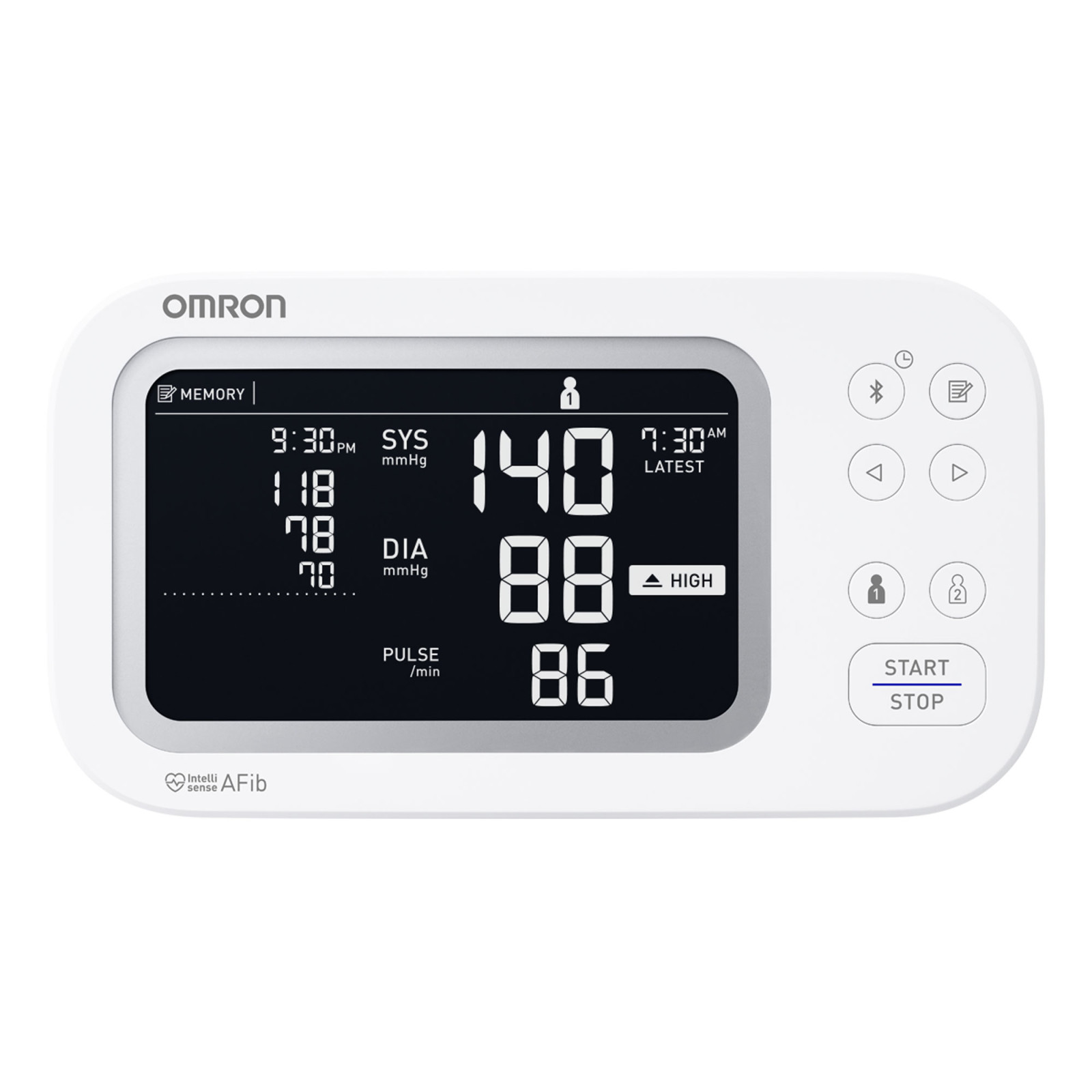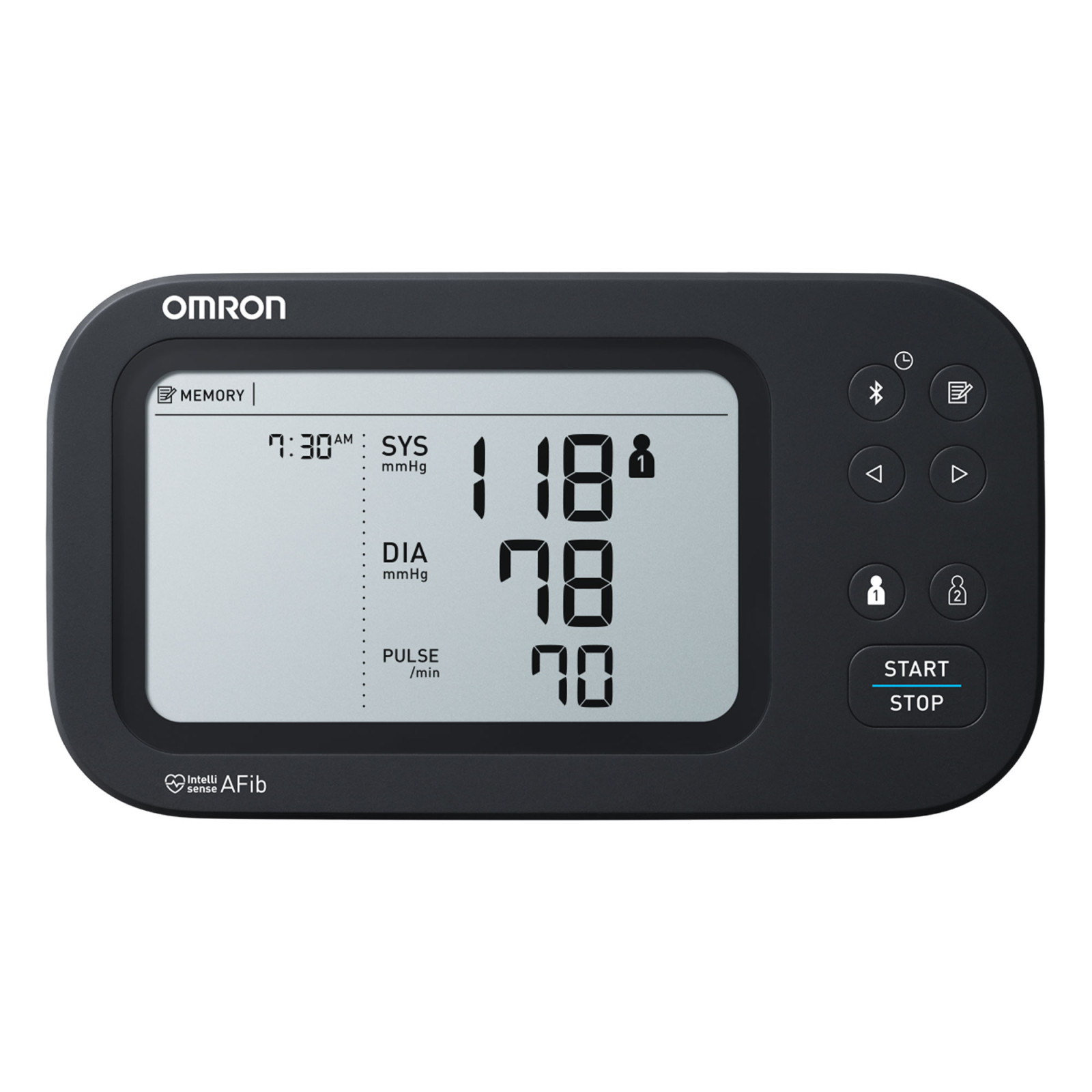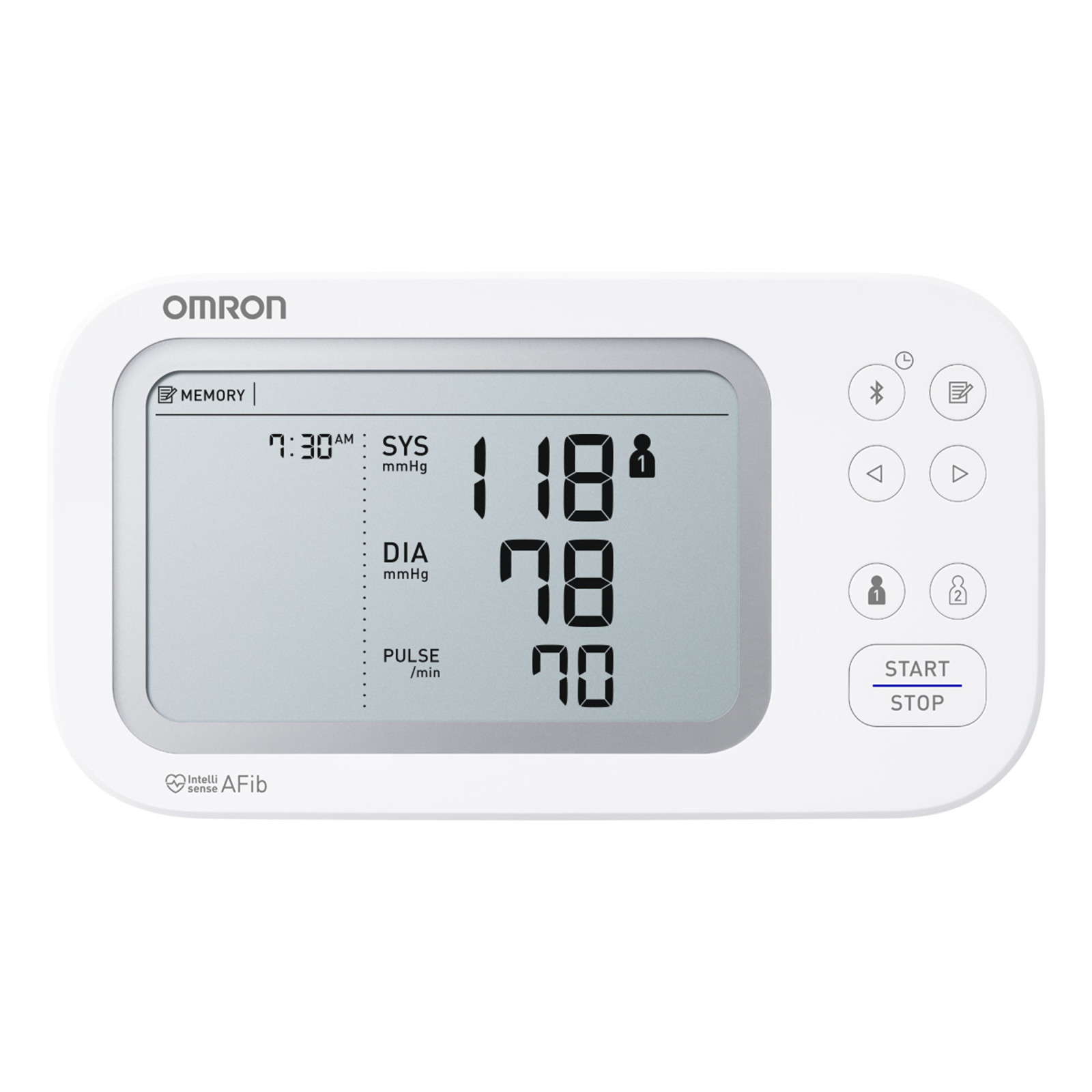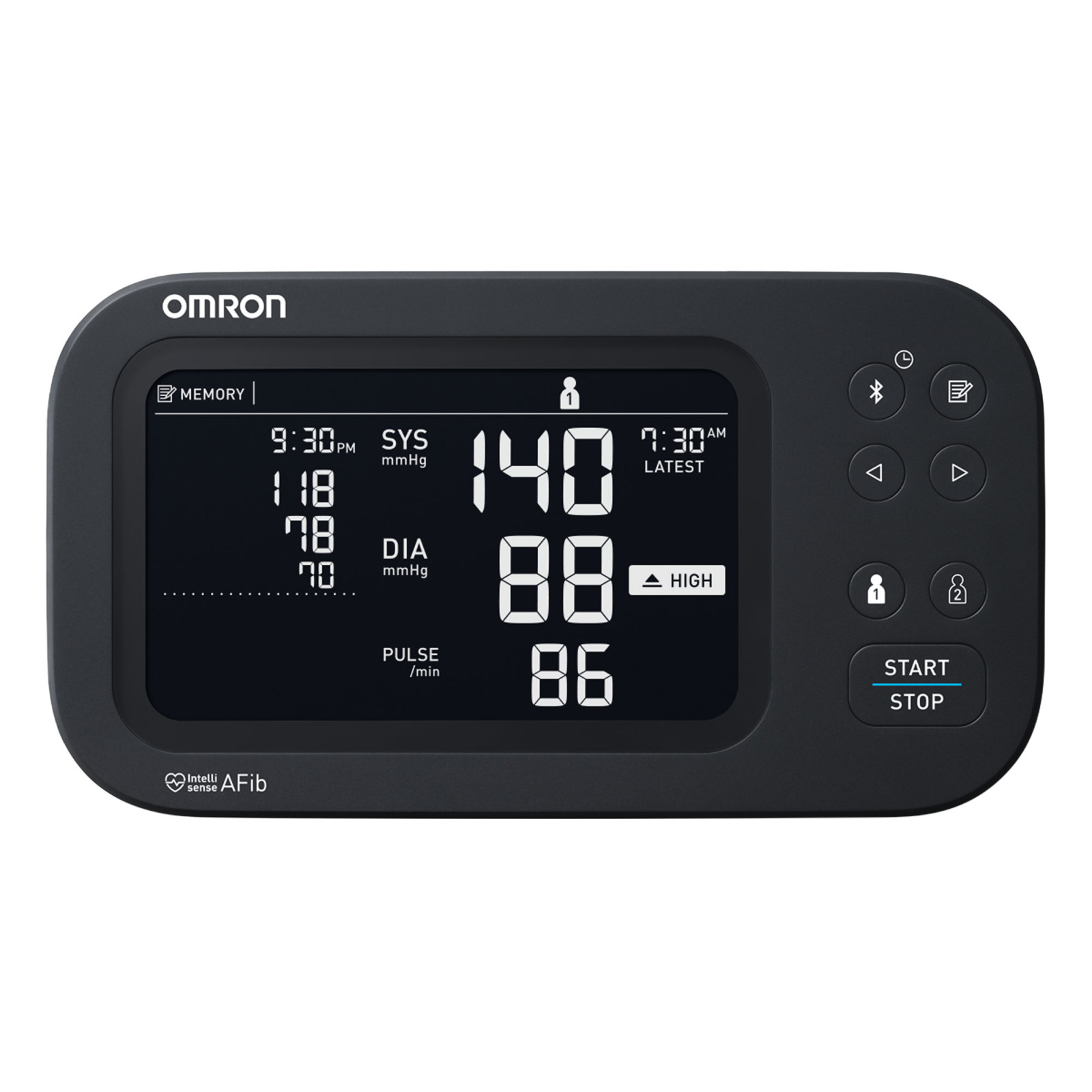
Help uncover stroke risk early
Detecting AFib while there's still time to act with select OMRON blood pressure monitors.
Thanks to the revolutionary AFib screening technology, routine blood pressure checks now automatically screen for Atrial Fibrillation, a heart rhythm disorder that is often undiagnosed but significantly increases stroke risk in people with hypertension.
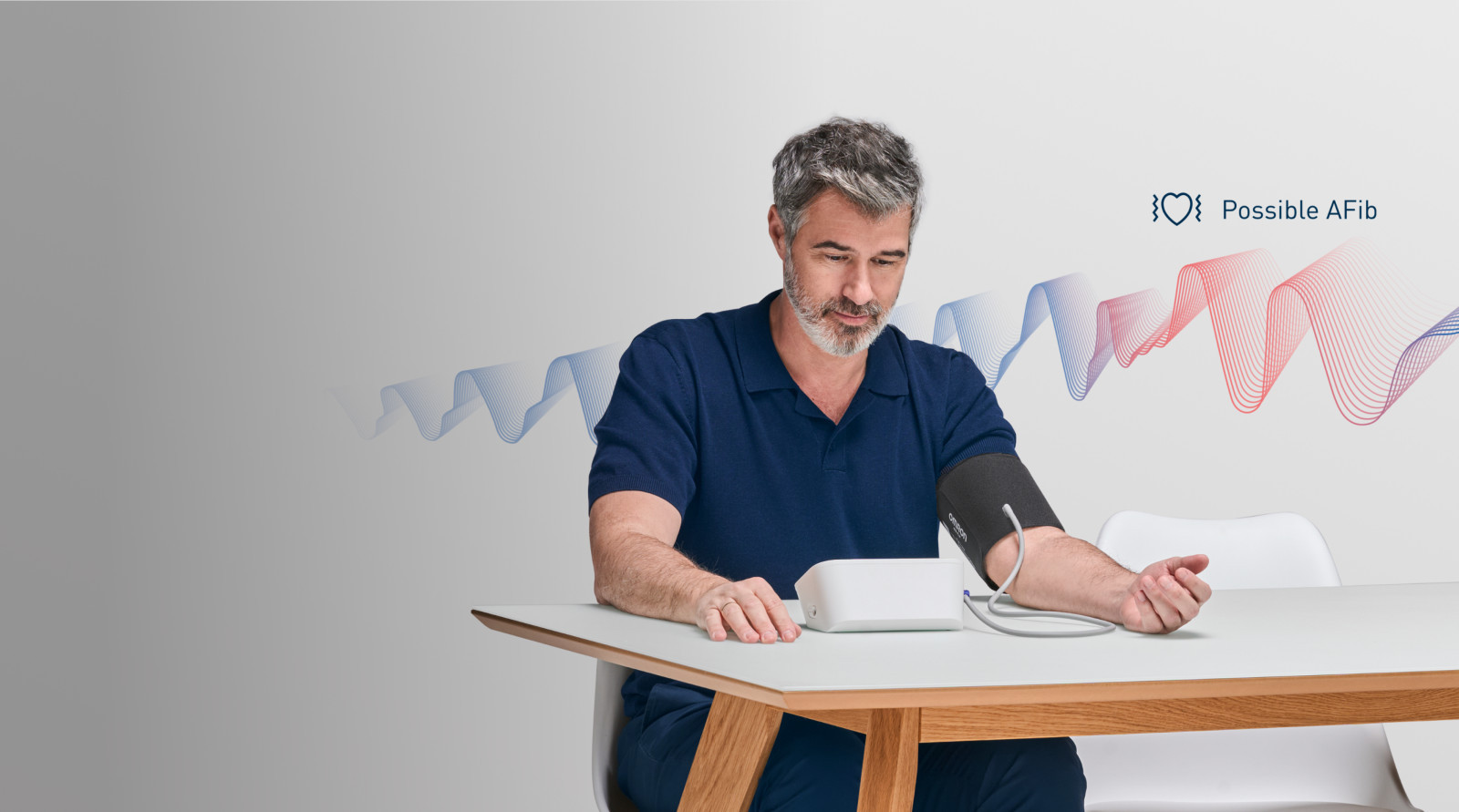


Around 25% of adults over 40 is at risk of developing AFib1
AFib is a heart rhythm disorder characterized by irregular and often abnormally rapid heart rate, which can lead to serious complications like stroke and heart failure.1 AFib prevalence in the United States is expected to rise to 12.1 million in 2030. The risk of developing AFib is a concern for approximately 1 in 4 adults over 40.
40% of patients with AFib are initially asymptomatic.4
In many cases, routine checkups can miss AFib, underscoring the need for enhanced detection methods to mitigate the risk of complications.
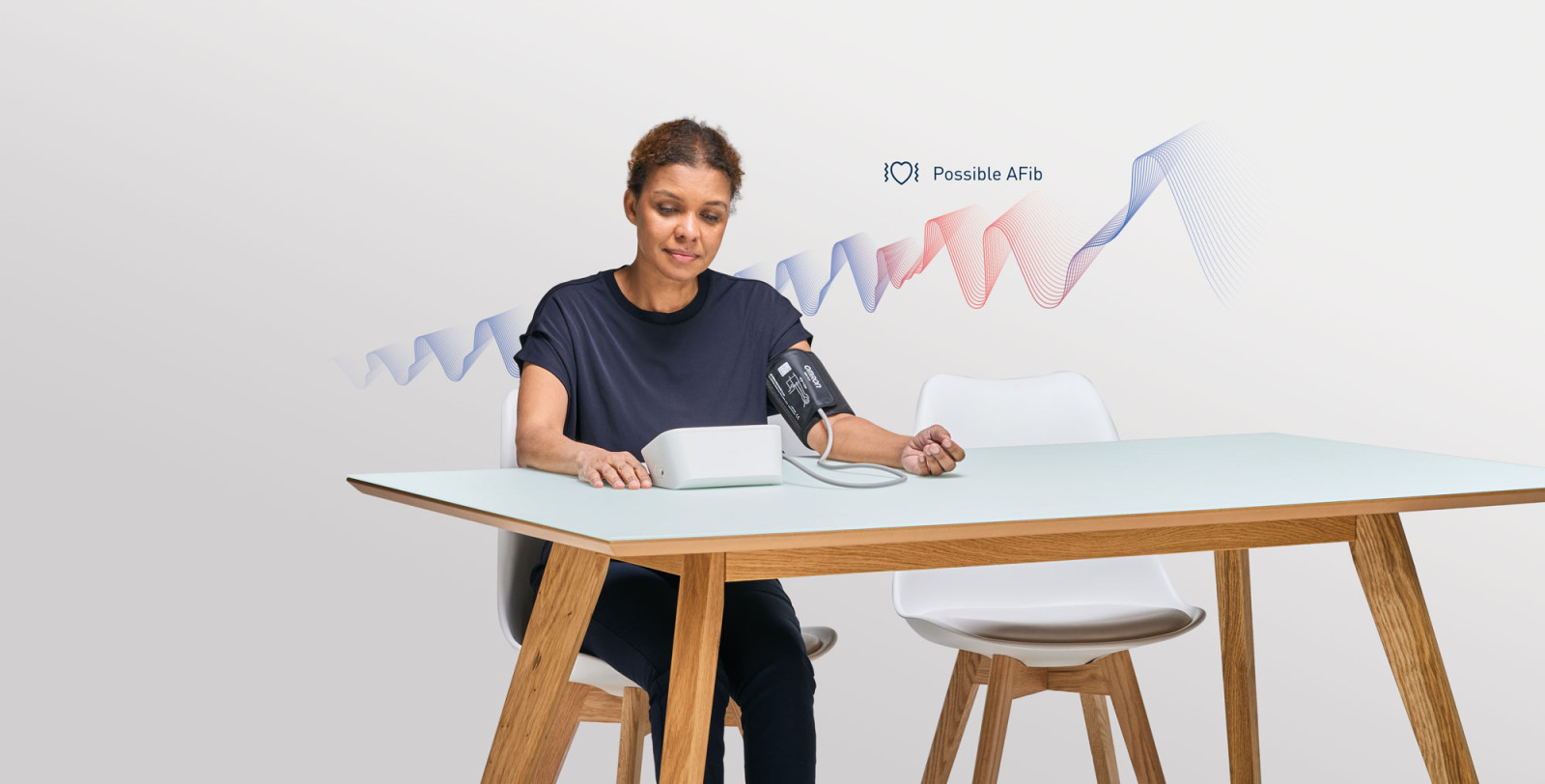

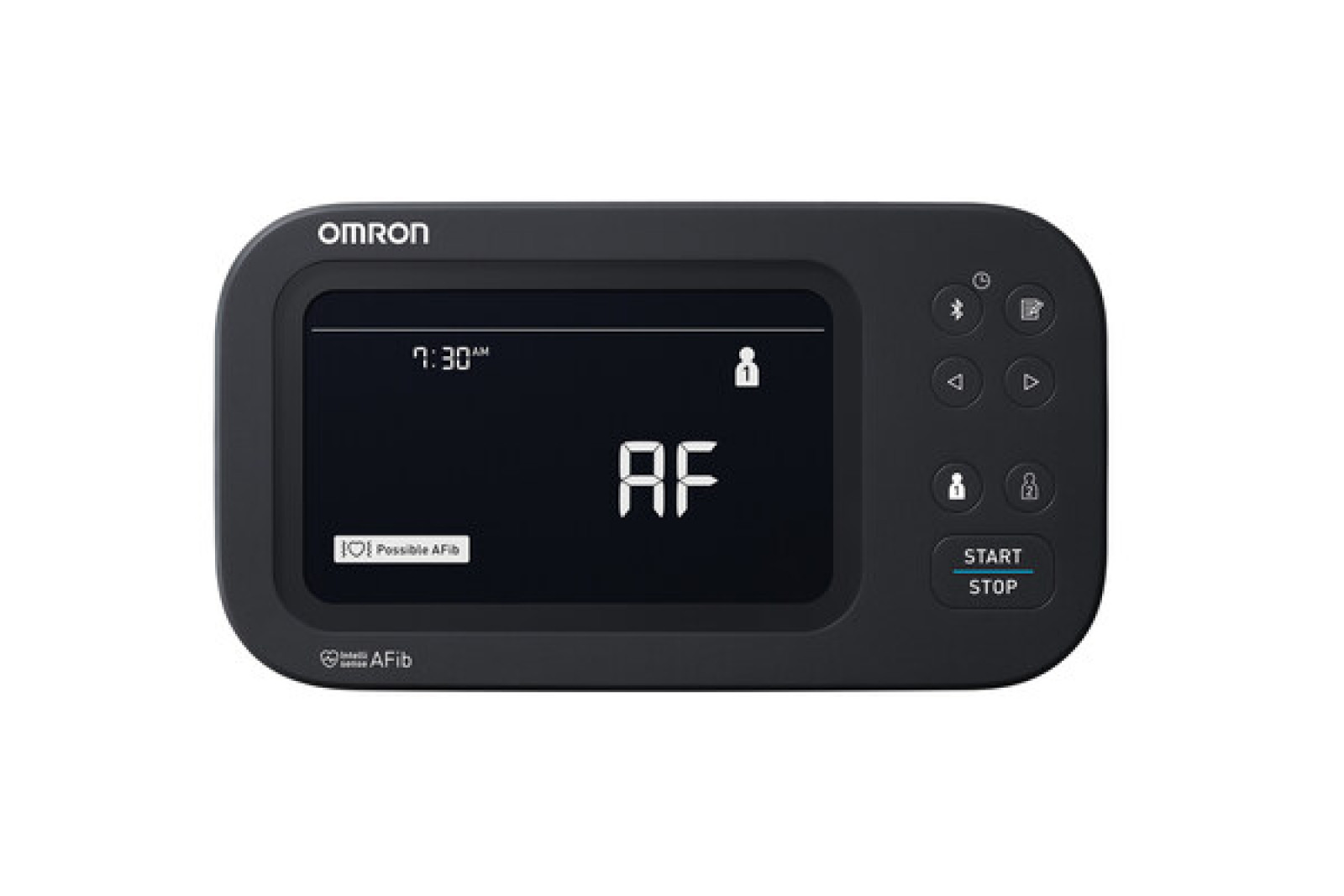
Early diagnosis and effective treatment could reduce the risk of stroke by 66%3
Early AFib detection is essential. But as the risk of AFib grows with age, its often subtle or mistaken signs leave numerous individuals undiagnosed. Symptoms include:
-
Palpitations
-
Shortness of breath
-
General weakness
-
Chest pain
-
Dizziness
Stroke due to AFib can have dire consequences
Patients with AFib strokes are associated with increased morbidity and mortality. A study comparing stroke patients with and without AFib found the following:6
Patients with AFib had higher in-hospital death rates (OR, 1.7; 95% CI, 1.2-2.5)
Longer hospital stays, 50 days for AFib stroke patients vs 40 days for stroke patients without AFib
Lower home discharge rates for AFib stroke patients (vs care facility, OR, 0.60; 95% CI, 0.44-0.85)7
AFib and hypertension
AFib and hypertension are common and often coexistent conditions, both of which increase in frequency with age. Hypertension is present in >80% of patients with AFib and is by far the most common comorbid condition, regardless of age.
In hypertensive patients, AFib at baseline was associated with a 3.6-fold increase in the occurrence of stroke and a 3.2-fold increase in new-onset heart failure.8
Differences in PPW waveforms between normal and AFib patients
Accuracy of OMRON's novel technology has been validated with 12 Lead ECG as the gold standard
Background
The early detection of AFib is key for preventing strokes. Home blood pressure monitors with AFib screening features have the potential for early detection.
Methodology
To evaluate the performance of OMRON’s new AFib detection feature, a multicenter study enrolled a total of 559 subjects (267 in the AFib cohort and 292 in the non-AFib cohort) in the US. A simultaneous 12-lead ECG waveform was recorded during the BP measurements and interpreted by a board-certified cardiologist who was blinded to the BPM AFib detection results.
Results
The OMRON BPMs with IntelliSense AFib technology had the sensitivity of 95%, specifity of 98% and accuracy of 97%.
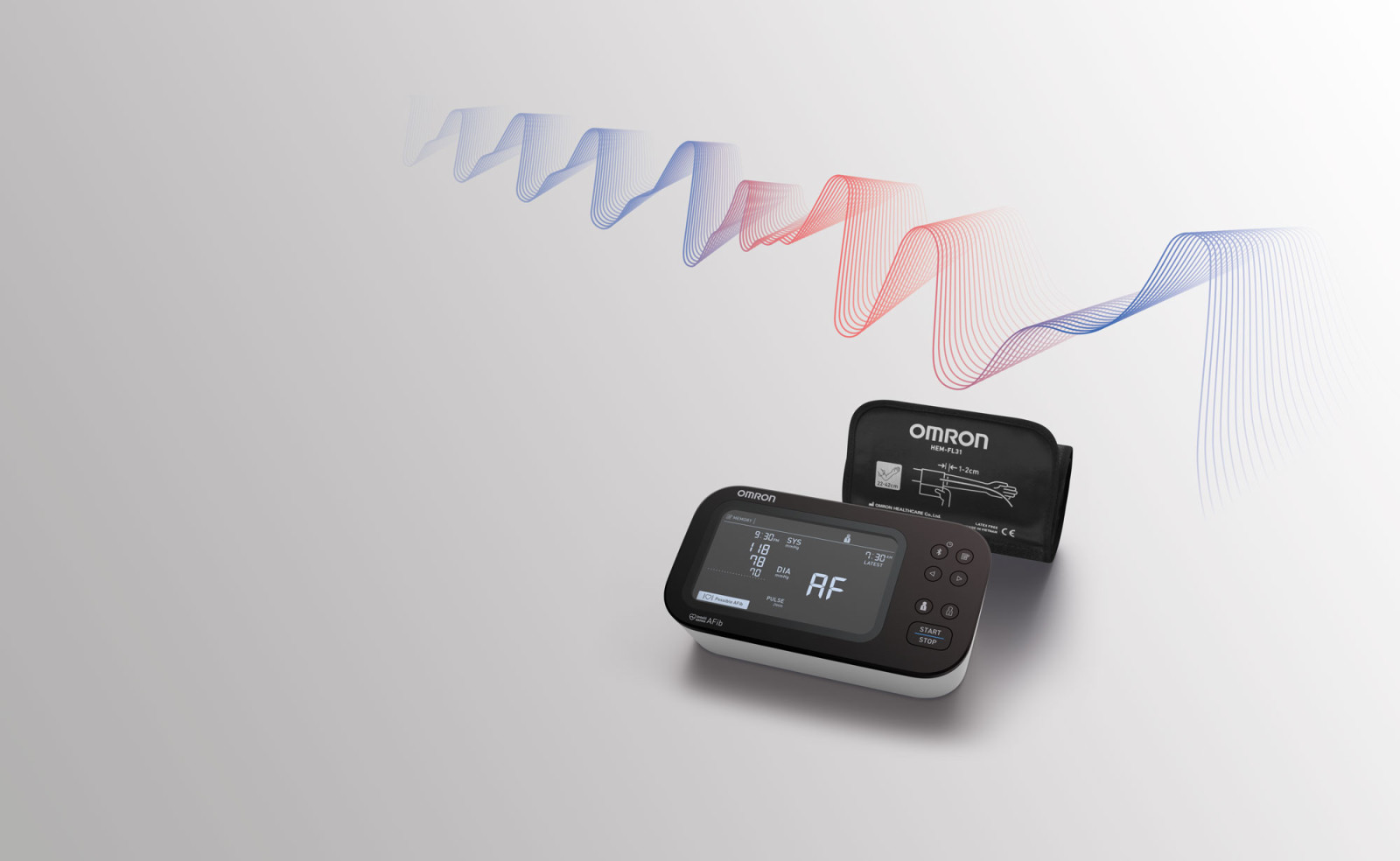

Medical Accuracy in Home Monitoring
Screen for AFib with each blood pressure measurement at home
Intellisense AFib Technology
AI-powered algorithm Intellisense AFib is OMRON's proprietary technology that calculates blood pressure and screens for AFib by analyzing pulse pressure waveforms (PPW), which reflect arterial pressure changes. By inflating a cuff on the upper arm, the sensor captures arterial pressure pulses, allowing Intellisense AFib to detect differences in waveforms and identify potential AFib.
AI-powered algorithm
Intellisense AFib technology employs machine learning techniques using a unique AI-powered algorithm developed through the analysis of thousands of ECG readings and pulse pressure wave clinical data points, validated in collaboration with medical professionals, ensuring its precision and reliability with a sensitivity of 95% and specificity of 98%.
-
OMRON leads with the highest number of validated blood pressure monitors on VDL.
-
The new technology does not change the patient's routine for BP measurement at home, while providing automatic AFib detection with each BP measurement.
-
AFib can be detected in only one measurement with high sensitivity and specificity.
-
Connecting the 7, 10 Series, Gold, and Platinum products with AFib technology to the OMRON connect app on their smartphone empowers patients to self-monitor their heart health at home. This increases their adherence to treatment, which leads to a better control of blood pressure.
OMRON Intellisense AFib Models
Resources
Lloyd-Jones DM et al. Lifetime risk for development of atrial fibrillation: the Framingham Heart Study, Circulation. 2004 Aug 31;110(9):1042-6.
European Society of Cardiology. The ESC. ESC Press Office. Press releases. Available at: https://www.escardio.org/The-ESC/Press-Office/Press-releases/Atrial-fibrillation-set-to-affect-more-than-14-million-over-65s-in-the-EU-by-2060. Accessed May 2023.
Lei N, et al. Hybrid Decision Support to Monitor Atrial Fibrillation for Stroke Prevention. Int J Environ Res Public Health. 2021 Jan 19;18(2):813.
Brandes, Axel et al. “Risk Factor Management in Atrial Fibrillation.” Arrhythmia & electrophysiology review vol. 7,2 (2018): 118-127. doi:10.15420/aer.2018.18.2
Staerk, L., et al. (2017). Atrial Fibrillation: Epidemiology, Pathophysiology, and Clinical Outcomes. Circulation research, [online] 120(9), pp.1501–1517.
Dzeshka, Mikhail S., et al. "Atrial fibrillation and hypertension." Hypertension 70.5 (2017): 854-861.
Verdecchia , et al. Hypertension and Atrial Fibrillation: Doubts and Certainties From Basic and Clinical Studies. Circ Res. 2018 Jan 19;122(2):352-368.
Diagnostic Accuracy for Detecting Atrial Fibrillation Using a Novel Machine Learning Algorithm in a Blood Pressure Monitor, Heart Rhythm published online 29 April 2024. DOI: https://doi.org/10.1016/j.hrthm.2024.04.086
From the date of purchase. Applicable to OMRON blood pressure monitors purchased after June 1, 2023, excluding Nightview, HeartGuide, HEM-907, HBP-1120, HBP-1320, and HEM-9210T. For OMRON blood pressure monitors purchased before June 2023, the warranty period is three years from the date of purchase.


